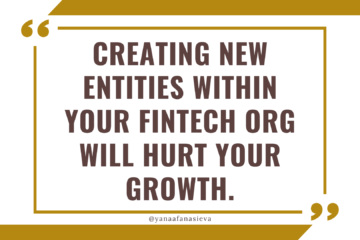FinTech Hubs 2023: Comparing Luxembourg, Liechtenstein, Ireland, and Lithuania
I’d like to share with you my observations about the similarities and differences between these 4 countries in terms of their FinTech regulatory approach.
Ireland
- The regulator is very experienced in supervising FinTech (but not specifically crypto) space, a lot of best practices are established, and there’s a sufficiently clear secondary regulatory framework available (circulars, guidelines, forms to complete).
- Very stringent requirements around how many senior positions need to be employed locally
- You must normally have a legal entity and contribute full capital before your license application can be formally submitted.
- Possible to apply simplified due diligence, AML regulations are in line with AMLD5/6
- License applications require a pre-application phase and generally take about 18 months +
Liechtenstein
- The regulator is very experienced in supervising the cryptocurrency space, a lot of best practices are established, and there’s a sufficiently clear secondary regulatory framework (circulars, guidelines, forms to complete).
- AML requirements are more stringent in comparison to the AMLD5 baseline, especially for legal entities.
- Not possible to apply simplified due diligence for cryptocurrency operations.
- This is probably the only regulator that does not need to urgently re-write their VASP laws post FTX because they already had requirements for all local VASPs to segregate customer crypto funds and to have minimum capital requirements.
Lithuania
- AML requirements are more stringent in comparison to the AMLD5 baseline for both legal entities and natural persons.
- Remaining regulatory uncertainty around cryptocurrency operators, the position of the BoL is that crypto businesses cannot be combined with regulated activities.
- Emphasis on creating an extended number of job opportunities for the local market and also an expectation that FinTech companies should offer specific services or bespoke financial products for the domestic market.
- A recent update on the VASP regime introduced more stringent requirements around local substance for VASPs and more stringent AML rules for crypto operations.
Luxembourg
- The regulator is very experienced in supervising FinTech (both fiat and crypto) space, a lot of best practices are established, and there’s a sufficiently clear secondary regulatory framework available (circulars, guidelines, forms to complete).
- Easier access to financial partnerships and banking services than in many other countries.
- Possible to apply simplified due diligence, AML regulations are in line with AMLD5, risk-based approach is well understood
- Substantial emphasis on the IT infrastructure, information security, and fraud management aspects of FinTech.
- Pre-application phase is required and the overall review process takes up to 18-24 months.
Is there something specific you’d like to know? Don’t hesitate to ask! 💭
Start listening to this episode on the Compliance That Makes Sense podcast 🎧 – Click here!


